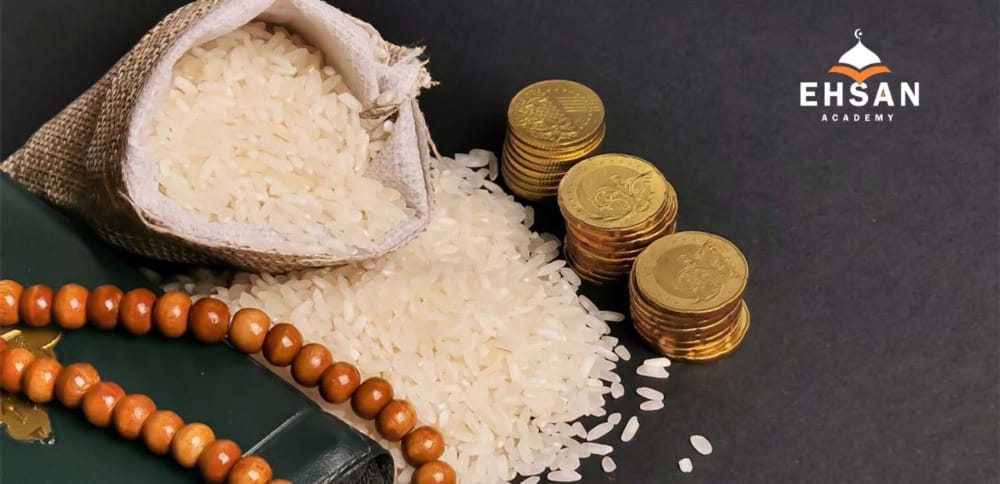Zakat is derived from the Arabic word “zakaa”, which means purification, growth, and blessings. Giving Zakat is considered an act of worship in Islam, and is one of the five pillars of Islam. It is obligatory for every Muslim who meets certain criteria of wealth to give Zakat, which is typically calculated as 2.5% of one’s annual savings and income.
Zakat meaning is not just about giving money to the poor, but it is also about purifying one’s own self and wealth. It reminds Muslims that everything they have is a gift from Allah and that they have a social and moral responsibility towards the less fortunate members of their community.
It can be given to a wide range of recipients, including the poor, the needy, those in debt, travelers, and those who are working in the cause of Allah. Zakat can also be given to charitable organizations that distribute the funds to those in need. In many Muslim countries, Zakat is collected by the government and distributed to those in need through various programs and initiatives.
In addition to Zakat, Muslims are also encouraged to give voluntary charity, known as Sadaqah, which is not obligatory but is considered a virtuous act of worship. Sadaqah can be given in any amount and to any recipient, and it can be given at any time throughout the year.
Overall, Zakat and Sadaqah are important parts of Islamic practice, and they reflect the Islamic values of compassion, generosity, and social responsibility.
Table of Contents
- 1 The third pillar of Islam is Zakat
- 2 How to calculate zakat
- 3 What are some common misconceptions about Zakat and Sadaqah?
- 4 Diffrence between zakat and sadaqah
- 5 who can receive zakat / who is eligible for zakat
- 6 Consequences of not paying zakat
- 7 Benefits of paying zakat for Muslim community
- 8 How can Zakat help reduce disparities in wealth and income?
- 9 FAQS
The third pillar of Islam is Zakat
which is the obligation for Muslims to give a portion of their wealth to those in need. Zakat is considered a way of purifying one’s wealth and helping to alleviate the suffering of the poor and needy. The amount of Zakat that a Muslim must give is based on their income and possessions, and is typically calculated as 2.5% of their wealth.
Zakat can be given directly to individuals in need or to charitable organizations that distribute the funds to those who require assistance. It is considered to be one of the most important acts of worship in Islam, and is a means of fulfilling the social and economic responsibilities that Muslims have towards their fellow human beings.
Learn more about
Islamic studies course Quran recitation course
How to calculate zakat
The calculation of Zakat is based on the type of wealth and the nisab, which is the minimum amount of wealth that one must possess in order to be obligated to pay Zakat. The following are some general guidelines for calculating Zakat:
- Calculate the Zakat rate: The Zakat rate is typically 2.5% of the Zakatable assets.
The nisab is the minimum amount of wealth that one must possess in order to be obligated to pay Zakat. The nisab varies depending on the type of wealth and is typically calculated based on the value of gold or silver, the nisab for Zakat is as follows:
- Gold: The nisab for gold is 85 grams 24 karat. This means that if a person possesses 85 grams of gold or more, they are obligated to pay Zakat on their gold wealth.
- Silver: The nisab for silver is 595 grams. This means that if a person possesses 595 grams of silver or more, they are obligated to pay Zakat on their silver wealth.
- Cash and other assets: The nisab for cash and other assets is determined by the value of gold or silver, it is better to calculate the nisab on the silver not the gold because it is better and more useful for poor people. so now if your money equlas 595 g of silver or more and you save it for one islamic year, pay zakat for it.
It is important to note that Zakat is only payable if a person’s wealth exceeds the nisab threshold and has been in their possession for a full lunar year. Additionally, Zakat calculations can be complex and may vary depending on individual circumstances, so seeking the advice of an Islamic scholar or a reputable charitable organization can be helpful in determining the Zakat obligation.
What are some common misconceptions about Zakat and Sadaqah?
There are several common misconceptions about Zakat and Sadaqah in Islam. Some of these include:
1. Zakat and Sadaqah are the same thing: While both Zakat and Sadaqah involve giving money to those in need, there are some key differences between the two. Zakat is an obligatory payment that is calculated based on one’s wealth and income, while Sadaqah is a voluntary donation that can be given in any amount and at any time.
2. Zakat and Sadaqah are only for Muslims: While Zakat and Sadaqah are primarily associated with Islam, they are not limited to Muslims. In fact, many non-Muslims also give to charitable causes and organizations, and many Muslim charities also provide assistance to people of all faiths and backgrounds.
3. Zakat and Sadaqah are only for the poor: While Zakat and Sadaqah are often given to those who are in need, they can also be given to support other causes, such as education, healthcare, and community development. In fact, many Muslim charities and organizations focus on providing a range of services and support to their communities beyond just financial assistance.
4. Zakat and Sadaqah are only given during Ramadan: While Ramadan is a particularly important time for giving Zakat and Sadaqah, these donations can be given throughout the year as well. In fact, many Muslims choose to give Sadaqah regularly as a way of supporting ongoing charitable causes and organizations.
5. Zakat and Sadaqah are only given in cash: While giving money is a common way of giving Zakat and Sadaqah, there are many other ways to give as well. For example, one can donate goods, services, or time to charitable causes, or support organizations that provide assistance to those in need. The important thing is to give what one can, in a way that is most meaningful and impactful for the recipient.
Diffrence between zakat and sadaqah
Zakat and Sadaqah are both forms of charitable giving in Islam, but there are some key differences between the two:
1. Obligation: Zakat is an obligatory payment that is required of all Muslims who meet certain criteria of wealth, while Sadaqah is a voluntary donation that is given out of one’s own free will.
2. Calculation: Zakat is calculated based on one’s income and savings, and is typically set at 2.5% of one’s wealth. Sadaqah, on the other hand, can be given in any amount and is not subject to a specific calculation.
3. Recipients: Zakat meaning in Islam is it must be given to specific categories of people, such as the poor, the needy, and those in debt. Sadaqah, on the other hand, can be given to any person or cause that one wishes to support.
4. Timing: Zakat is typically given during the month of Ramadan, although it can be given at any time during the year. Sadaqah can be given at any time and is not tied to a specific time period.
5. Purpose: The purpose of Zakat is to purify one’s wealth and provide for those in need, while the purpose of Sadaqah is to earn rewards and blessings from Allah by giving generously and supporting good causes.
In summary, while Zakat and Sadaqah are both forms of charitable giving in Islam, Zakat is an obligatory payment that is calculated based on one’s wealth and income, while Sadaqah is a voluntary donation that can be given in any amount and to any cause.
who can receive zakat / who is eligible for zakat
Yes, there are specific criteria for determining who is eligible to receive Zakat in Islam. These criteria are based on the teachings of the Quran and the Sunnah (the example of the Prophet Muhammad). The following are the eight categories of people who are eligible to receive Zakat:
1. The poor (al-fuqara) : These are people who do not have enough to meet their basic needs, such as food, clothing, and shelter.
2. The needy (al-masakin) : These are people who are in a difficult financial situation and are unable to support themselves or their families.
3. Zakat collectors (al-‘amileen) : These are people who are responsible for collecting and distributing Zakat. They may be appointed by the state or by a charitable organization.
4. Those whose hearts are to be reconciled (al-mu’allafat al-qulub) : These are people who are not Muslim, but are sympathetic to Islam or are potential converts. Zakat can be given to them in order to encourage them to become Muslims.
5. Those in bondage (al-riqaab) : These are people who are in debt or are enslaved. Zakat can be given to help them pay off their debts or to buy their freedom.
6. The wayfarer (al-ibnus-sabeel): These are travelers who are stranded and in need of assistance.
7. Those who are in the cause of Allah (fi sabilillah) : These are people who are working towards the cause of Islam, such as scholars, teachers, and those involved in charitable activities.
8. The poor employees (al-gharimeen) : These are people who have taken on debt in order to meet their basic needs or to start a business. Zakat can be given to help them pay off their debts and become financially stable.
It is important to note that Zakat should be given to those who are eligible and in need, and should not be used for any other purpose. Muslims are encouraged to investigate the eligibility of recipients before giving Zakat and to ensure that their donations are going to the intended beneficiaries.
Consequences of not paying zakat
In Islam, Zakat is considered an obligation and a form of worship. Therefore, not paying Zakat is considered a sin and can have spiritual consequences. The following are some of the potential consequences of not paying Zakat:
1. Displeasure of Allah: Not paying Zakat is considered a violation of the rights of the poor and needy, and can lead to the displeasure of Allah.
2. Punishment in the Hereafter: Muslims believe that they will be held accountable for their actions in the Hereafter, and not paying Zakat can result in punishment in the afterlife.
3. Social and economic harm: Zakat is an important means of providing assistance to the poor and needy, and not paying Zakat can lead to social and economic harm in society.
4. Loss of blessings: Muslims believe that giving Zakat is a means of purifying one’s wealth and earning blessings from Allah. Not paying Zakat can result in a loss of these blessings.
It is important to note that Zakat is not just a financial obligation, but also a social and moral responsibility. Muslims are encouraged to give Zakat willingly and generously, as a means of fulfilling their obligations to Allah and their fellow human beings.

Benefits of paying zakat for Muslim community
Paying Zakat in Islam is not only an act of worship and a means of fulfilling one’s obligations to Allah, but it also has a number of social and economic benefits for the Muslim community. Some of the benefits of paying Zakat for the Muslim community are:
1. Helping the poor and needy: Zakat is primarily intended to help those in need, such as the poor, the homeless, and the destitute. By paying Zakat, Muslims can help alleviate poverty and provide assistance to those who are struggling to make ends meet.
2. Promoting social justice: Zakat is a means of promoting social justice and equality, as it requires those who are financially able to support those who are in need. This can help reduce disparities in wealth and income, and promote a more just and equitable society.
3. Strengthening the community: Zakat can help strengthen the bonds of community and solidarity among Muslims, as it encourages a sense of shared responsibility and mutual support.
4. Purifying one’s wealth: Zakat is considered a means of purifying one’s wealth and removing any negative effects of wealth accumulation, such as greed and selfishness. This can lead to a greater sense of spiritual and moral well-being among Muslims.
5. Supporting charitable works: Many Muslims choose to give Zakat to charitable organizations and initiatives that provide a range of services and support to their communities beyond just financial assistance. This can help promote a culture of giving and altruism among Muslims.
Overall, paying Zakat can have a range of positive social, economic, and spiritual benefits for the Muslim community, and can help promote a more just, equitable, and compassionate society.

How can Zakat help reduce disparities in wealth and income?
Zakat can help reduce disparities in wealth and income in several ways:
1. Redistribution of wealth: By requiring those who are financially able to give a portion of their wealth to those in need, Zakat promotes the redistribution of wealth and the reduction of economic disparities. This can help reduce the concentration of wealth among a small group of individuals and promote a more equitable distribution of resources.
2. Alleviating poverty: Zakat is primarily intended to help those in need, such as the poor and the needy. By providing assistance to those who are struggling to make ends meet, Zakat can help alleviate poverty and reduce economic disparities.
3. Encouraging charitable works: Many Muslims choose to give Zakat to charitable organizations and initiatives that provide a range of services and support to their communities beyond just financial assistance. This can help promote a culture of giving and altruism, and encourage individuals and organizations to work towards reducing disparities in wealth and income.
4. Promoting social justice: Zakat is a means of promoting social justice and equality, as it requires those who are financially able to support those who are in need. This can help reduce disparities in wealth and income, and promote a more just and equitable society.
By promoting the redistribution of wealth, alleviating poverty, encouraging charitable works, and promoting social justice, Zakat can help reduce disparities in wealth and income and promote a more equitable and just society.
FAQS
zakat rules
The following are some of the main rules and guidelines for giving Zakat in Islam:
1. Who should give Zakat: Zakat is obligatory for all Muslims who meet certain criteria of wealth. The criteria vary depending on the type of wealth (such as gold, silver, or cash) and are based on the nisab, which is the minimum amount of wealth that one must possess in order to be obligated to pay Zakat.
2. What is subject to Zakat: Zakat is typically calculated as 2.5% of one’s wealth, including cash, savings, investments, precious metals, and other assets that are held for a full lunar year.
3. Recipients of Zakat: Zakat must be given to specific categories of people who are eligible and in need, such as the poor, the needy, those in debt, travelers, and those who are working in the cause of Allah.
4. Timing of Zakat: Zakat can be given at any time during the year, although it is typically given during the month of Ramadan.
5. Method of giving Zakat: Zakat can be given directly to those in need, or it can be given to charitable organizations that distribute the funds to those who require assistance.
6. Calculation of Zakat: The calculation of Zakat is based on the type of wealth and the nisab, and is typically done on an annual basis. There are many Zakat calculators available online that can help individuals calculate their Zakat obligation.
7. Importance of intention: It is important to have the intention of giving Zakat when making a donation, as the intention is considered an essential component of the act of worship.
It is important to note that Zakat is not just a financial obligation, but also a social and moral responsibility. Muslims are encouraged to give Zakat willingly and generously, as a means of fulfilling their obligations to Allah and their fellow human beings.
Can I give zakat to my sister or my family
yes, you can give zakat to your sister or your family especially if they are in need of it and you will get more good deeds for that.
How can I determine if my sister is eligible for Zakat?
In order to determine if your sister is eligible for Zakat, you can evaluate her financial situation to see if she meets the eligibility criteria. The following are some factors to consider:
1. Income: If your sister’s income is below the poverty line or she has no income, she may be eligible for Zakat.
2. Assets: If your sister does not have sufficient assets to meet her basic needs, such as food, clothing, and shelter, she may be eligible for Zakat.
3. Debt: If your sister is in debt and is unable to pay off her debts, she may be eligible for Zakat.
4. Health: If your sister has health problems that prevent her from supporting herself financially, she may be eligible for Zakat.
5. Dependents: If your sister has dependents, such as children or elderly parents, who rely on her for financial support and she is unable to meet their needs, she may be eligible for Zakat.
It is important to note that eligibility for Zakat is determined on a case-by-case basis, and it is up to the giver to investigate the eligibility of the recipient before giving Zakat. You may also seek the advice of an Islamic scholar or a reputable charitable organization to determine if your sister is eligible for Zakat.
Why is Zakat important
Zakat is an important pillar of Islam and has several important roles in the life of a Muslim. The following are some of the reasons why Zakat is considered important in Islam:
1. Fulfillment of religious obligation: Zakat is an obligation upon all Muslims who meet certain criteria of wealth. Fulfilling this obligation is considered an essential part of being a practicing Muslim.
2. Purification of wealth: Zakat is a means of purifying one’s wealth and removing any negative effects of wealth accumulation, such as greed and selfishness. This can lead to a greater sense of spiritual and moral well-being among Muslims.
3. Redistribution of wealth: By requiring those who are financially able to give a portion of their wealth to those in need, Zakat promotes the redistribution of wealth and the reduction of economic disparities. This can help reduce the concentration of wealth among a small group of individuals and promote a more equitable distribution of resources.
4. Alleviating poverty: Zakat is primarily intended to help those in need, such as the poor, the homeless, and the destitute. By paying Zakat, Muslims can help alleviate poverty and provide assistance to those who are struggling to make ends meet.
5. Encouraging charitable works: Many Muslims choose to give Zakat to charitable organizations and initiatives that provide a range of services and support to their communities beyond just financial assistance. This can help promote a culture of giving and altruism, and encourage individuals and organizations to work towards the betterment of their communities.
Overall, Zakat is an important means of fulfilling one’s religious obligations, promoting social justice and economic equity, and providing assistance to those in need. By paying Zakat, Muslims can help build a more just and compassionate society and fulfill their duties to Allah and their fellow human beings.







